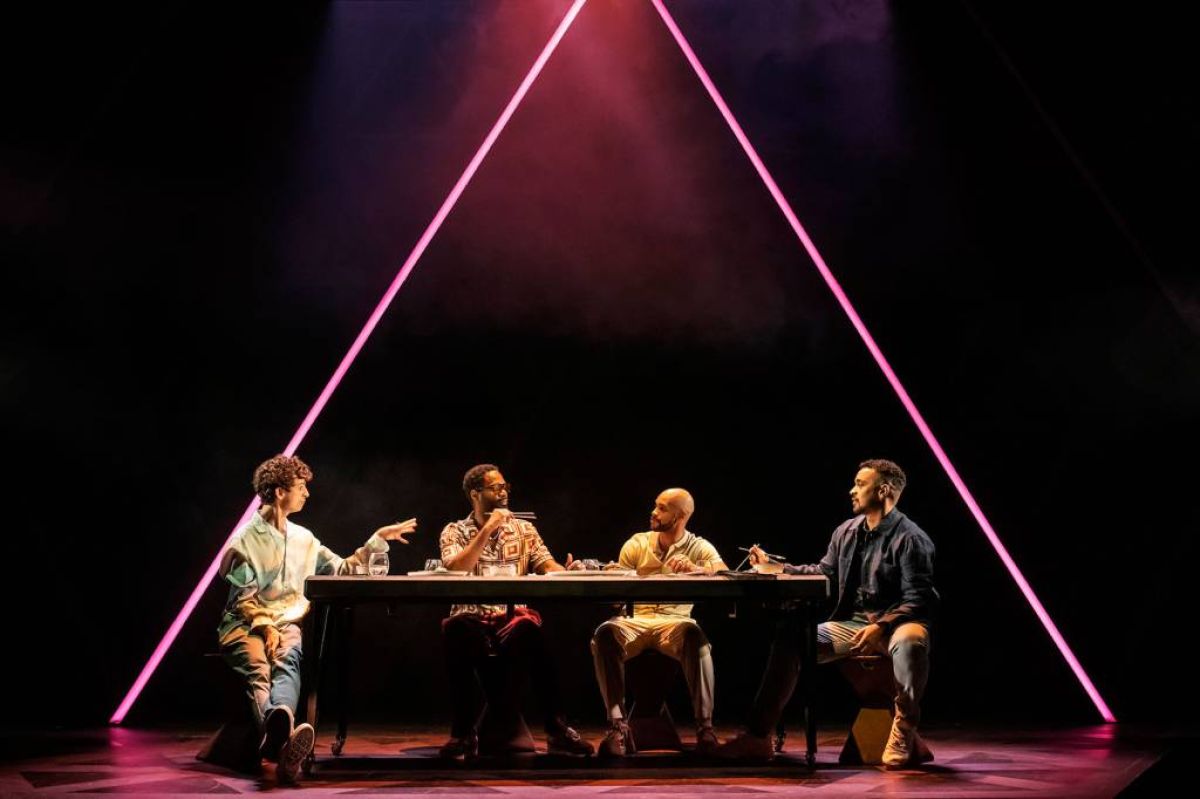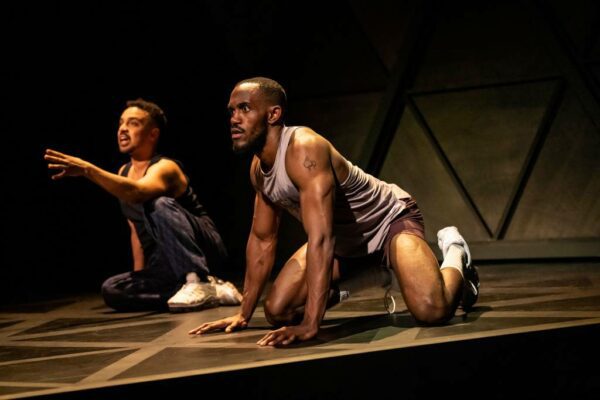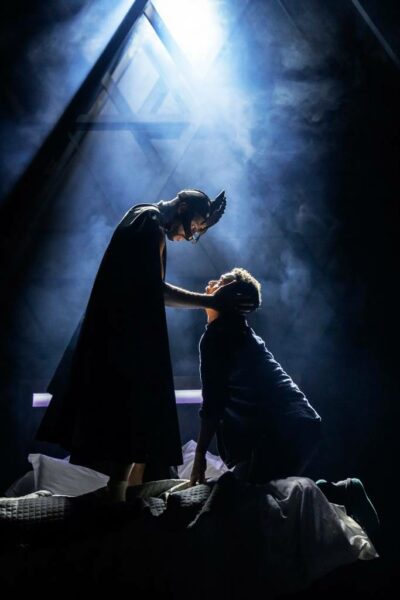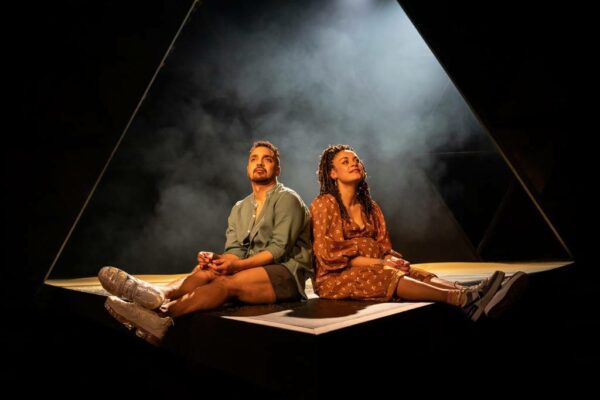
LGBT dramas have often failed when it comes to intersectionality. Generally, they’re about a bunch of White gays who face homophobia, yes, but there’s little interrogation of other identities. These days, they often have a token Black or brown character (sometimes both), but the stories are still White. These gays of colour are superficially melanated.
It’s a Sin was groundbreaking, and it explored a great deal of issues, but it failed to tackle the intersection between sexuality and race/ethnicity. Sure, there was a Black guy and an Indian guy, but all that did was remind people that not all gays are White; there was little consideration for the ways in which their Blackness/brownness and queerness interact – and any queer person of colour knows how hard it is to navigate that!
Then there’s Pose, arguably the best thing Ryan Murphy has ever created. The critically acclaimed series is about New York City’s ball culture in the 1980s and 90s, an LGBTQ subculture in the African-American and Latino communities. Most of the cast is transgender. For the first time, queer people of colour saw themselves represented onscreen – not only in a positive light but, better, a nuanced light. The characters aren’t your archetypal do-no-wrong “gay best friends”. They’re good people but damaged, capable of hurting others. They’re people.
So, when it was announced that Pose star Dyllón Burnside was making his London stage debut, in an intersectional play that explores the relationship between queerness and Blackness, I knew I had to see it.

Black Superhero is the debut play by Danny Lee Wynter, who began his professional career whilst ushering at the Royal Court Theatre – how poetic that it is that theatre which has commissioned his debut play? I previously saw Wynter in a fabulous, outrageous, gender-swapped adaptation of The Maids, which saw HOME’s proscenium arch theatre transformed into an in-the-round space, with the circle becoming the stalls. Radical, right?
I was supposed to review Black Superhero at the end of March but the performance was cancelled on the day, whilst I was on the train… It was then announced that Wynter had taken the difficult decision to depart from the play, with Lewis Brown covering his (lead) role. By the time I saw the play, Brown had been in the role for three weeks but you’d think he’d been playing it for months.
I felt every single emotion his character, David, felt because even though David is not always the most likeable character, he’s incredibly sympathetic. It’s one of the most nuanced, complicated and multi-faceted portrayals I’ve seen onstage, and I see multiple shows a week. Lewis Brown is a tour de force, as talented as he is attractive, and I hope this performance boosts his profile.

Black Superhero follows a group of friends, all of them actors, all of them having varying degrees of success. David’s career has never really taken off whilst King (Burnside) is a superstar: he plays fictional superhero Craw in a Marvel-style franchise; he is the eponymous Black Superhero. David is not so much jealous of King as he is in love with him. King loves David too, not just as a friend but a casual lover – but David is in love with him.
King, though worshiped as a superstar, does not see himself as one. He can be a bit entitled, yes, but he’s also insecure. He’s proud of his success but uncomfortable with the fame that is a direct consequence of it. David sees him, quite literally, as a superhero, but he’s just another gay Black man, another human, trying to get through life.
Burnside is perfectly cast as King. (On a superficial level, his ridiculous good looks and glowing skin are exactly what you’d expect from the character). He’s charming and disarming. He’s got swagger and sass but a smile that lights up a room. I was so looking forward to seeing Burnside onstage – and, after that performance, I hope to see him again.
The dream-like scenes, in which David imagines King as Claw, are mesmerising. Claw even flies! (Sorry, spoiler). The play, with its simple staging, makes great use of technology. The lighting and sound design are incredibly atmospheric and transport you from location to location, even whilst the stage remains mostly bare, save for a giant white triangle. The scene in which sand falls from above (initially, it looks like rain), allowing for a transition to a beach, is majestic.

The play goes a mile-a-minute, jumping from topic to topic. It is jam-packed with issues and ideas. Some might find it overstuffed but it never feels like overkill. It’s a lot, yes, but that’s life, and this play is a reflection of real life. It’s a study into what it means to be both queer and Black.
There are brief mentions of an abundance of things, some of which local audiences might find funny, e.g. Clapham gays. Then there are more in-depth discussions, e.g. the merits of th3 film Moonlight. The play even touches upon the insidiousness of liberal racism, especially from ostensibly progressive White gays, which is seldom acknowledged. (This is an issue I was keen to explore in my BBC documentary about queer South Asians but, alas, you can only do so much in a 45-minute observational documentary).
I was particularly humoured by David auditioning for an all-Black Hamlet, directed by a White woman…
The play, like fellow Royal Court play For Black Boys…, is determined to offer a nuanced portrayal of its characters. No group of people is a monolith. Yet, David almost ironically wants gay Black men to be a monolith. He is often frustrated when his friends do not agree with him on issues of race and sexuality. His constant preaching and his remarkable ability to be overzealous about everything is exhausting for his friends.
One friend, however (played to perfection by Eloka Ivo), sometimes embodies gaslight, gatekeep, girlboss (gayboss?). Now that he’s found success, he’s not all that bothered about fellow gay Black actors and even sees no issue with straight actors playing gay characters. But the play never vilifies him; it allows him to explain his points of view – but also uses him, at times, to (allow David to) explain why his views are problematic.
The play never idolises David, however. On the contrary. David is a preachy progressive who cares more about issues and ideas than he does about real life (heck, he even turns real life into superhero-like dream sequences). He’s not only dismissive towards his friends but also his sister, who is growing tired of his antics.
Rochenda Sandall, the only woman in the cast, steals just about every scene she’s in. I thought I recognised her – turns out she was Lisa McQueen in Line of Duty and Anna/Azure in Doctor Who! Others might recognise her from Criminal: UK, Deceit, and The Rig. She’s clearly got a penchant for playing strong, badass women.

There’s also a standout performance from established actor Ako Mitchell. He does not appear until the second act but immediately chews up the scenery. His character is used to explore further issues, namely, “I’m not gay; I just have sex with men”. (Toxic masculinity, internalised homophobia, self-hatred, and all that jazz…)
Speaking of the second act, there is a huge, jarring tonal shift. Whilst the first act might be considered a dark comedy, the second act turns into a psychological tragedy. It’s tense and intense. It’s uncomfortable, overwhelming and suffocating. David spirals out of control but we also learn why he is the way he is. The scene in which David relays this information to Mitchell’s character is harrowing. Whilst we initially viewed his sexual promiscuity as empowering, as sex positivity, we now realise it is the result of something quite horrible; it’s a way to deal with unresolved trauma.
Everything about this play is nuanced – even its handling of sex/uality. Early on in the first act, David, King and a friend hook up in a club. It’s a beautiful, proud portrayal of gay Black love, which most art shies away from; I don’t think I ever saw it represented before Pose. The final sex scene, however, is sinister.
This is a play like no other. It’s not an easy watch. It’s funny and enjoyable, yes, but also philosophical and emotional. I felt drained by the end of it but I’m glad I trekked 200 miles to see it (and not just because I got to see Dyllón Burnside in the flesh).
Black Superhero is a timely, topical, terrific piece of theatre, and I can’t wait to see what Wynter does next (hopefully something a little lighter).
Black Superhero runs at Royal Court Theatre (Jerwood Theatre Downstairs) until April 29. So, get your ass down there before it flies away! If you can’t make it, you can purchase the play text online.







